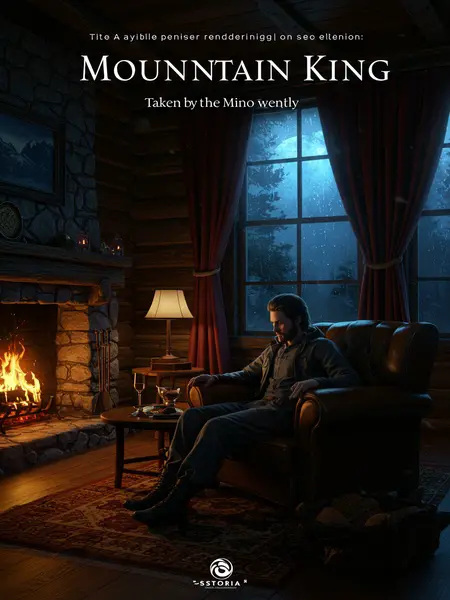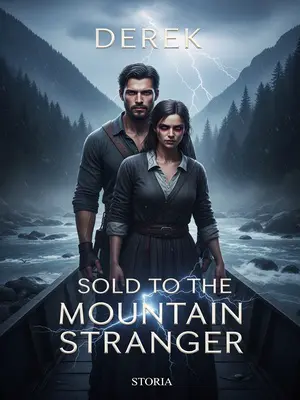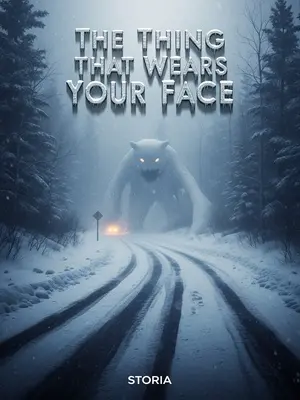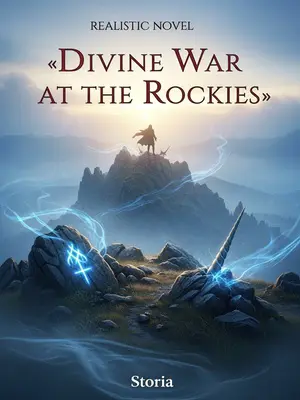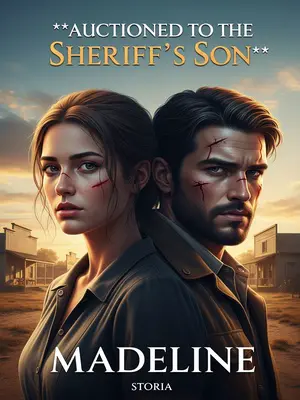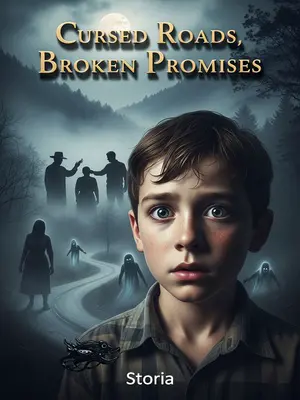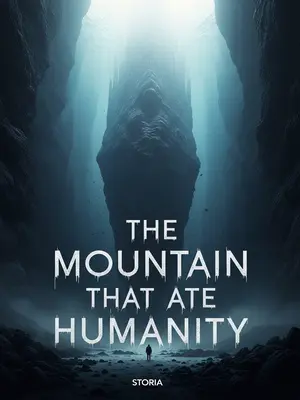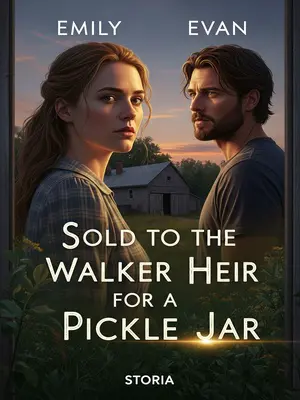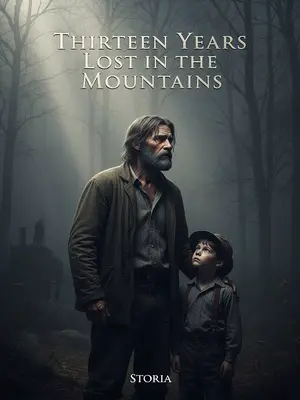Chapter 6: Breakfast and Betrayal
The kitchen smelled like coffee and frying onions. I set out chipped mugs, a box of Cheerios, and a bottle of cheap maple syrup.
Breakfast was steel-cut oatmeal, crispy veggie pancakes, and thick slabs of smoked ham—just like my grandma used to serve on Christmas morning.
When I was little, we only had this at Christmas.
I remembered sitting at the big table, unwrapping presents with frozen fingers, hoping for new socks and a peppermint stick. Those mornings felt like a lifetime ago.
Yesterday morning, they ate so much they felt embarrassed afterward.
I watched as they filled their plates, then glanced around sheepishly, laughing about their "hiker’s appetites." City folks always tried to act like they didn’t care about food, but hunger wins every time.
People from the city are all so good at pretending.
They wore their masks well—smiling, joking, pretending nothing was wrong. But I could see the cracks underneath.
While they ate, I went to buy some neighbors’ home-cured ham and barbecue sauce, wrapped in wax paper in my basket, and picked up all kinds of instant noodles and bagels from the only store in town.
The store owner, Mrs. Howard, raised an eyebrow at my haul. “Big party?” she asked. I just smiled and handed over a crumpled twenty. She shrugged and tossed in a couple extra packets of hot sauce for free.
If I didn’t bring Natalie and Aubrey back today, Mr. Knox would have four women with him—his rations definitely wouldn’t last.
I thought about the math: four people, two days’ worth of food at best. I didn’t want to imagine what would happen if they ran out.
I’d heard that in old times, as long as a man could provide food and drink, he could have three or four wives.
My grandma used to tell stories about the old-timers, polygamists who hid in the hills. I never believed them, but maybe there was some truth to it after all.
That’s impossible now, but whether they’re wives or not hardly matters anymore.
Labels meant nothing up here—just actions. You could call it whatever you liked, but it was still the same ugly bargain underneath.
The rich have their invisible privileges in any era.
Nothing changes, not really. Money moves the world, even on the edge of nowhere.
Feeling bitter about fate, I carried the basket home. The sun was getting hotter, the yard was stifling, and Ms. Dana was reading in a chair in the main room.
She looked perfectly at ease, legs crossed, book balanced on one knee. The air conditioner hummed softly, barely keeping the heat at bay.
“Ms. Dana, I’ve packed some food and drinks for Mr. Knox. I’ll take it over today.”
She didn’t even look up at first—just turned a page, then glanced at the basket with a faint smile.
She glanced over. “You’re thoughtful. He likes this kind of junk food.”
Her voice dripped with irony, but there was a hint of approval there, too. I wondered what she really thought of Mr. Knox’s tastes.
That sounded odd.
I hesitated, shifting my weight from foot to foot. Maybe I’d said too much, or not enough.
“Ma’am, is there anything you want to eat today? I just checked, the town has fresh fish and catfish, or I could roast a chicken.”
I tried to keep my voice neutral, but my hands fidgeted with the basket handle.
“No need. Just make lunch for them. Someone’s coming to pick me up soon—I’ll be leaving.”
She said it offhand, as if it didn’t matter. But I felt a strange panic—like something important was slipping away.
“Leaving? Where to?”
I blurted it out before I could stop myself, voice too loud in the quiet room.
My dumb look made her laugh. “Where? What, you want me to stay in this place forever?”
Her laughter was sharp, almost cruel. I felt my face flush with embarrassment.
I stammered, “No, no, I just meant… Mr. Knox hasn’t come back yet, and aren’t those ladies here with you?”
I fumbled for words, trying not to sound accusatory. My cheeks burned. She just watched me, amused.
“Yeah, so what? I’m not their babysitter. Go mind your own business, don’t poke your nose in.”
Her tone left no room for argument. I ducked my head and backed out, mumbling an apology.
I left, feeling awkward, and went to the backyard. Faith and Yasmine were packing up.
They worked quickly, barely speaking to each other. The mood was tense, but not unfriendly. I wondered if they’d had an argument or if they were just tired.
Yasmine had brought a lot—her backpack was huge, even with a small tent inside.
She grunted as she tried to zip it shut, then laughed at herself. “Guess I overpacked, huh?”
“That’s way too heavy. You can’t carry all that, it’s a two-hour walk,” I said.
I tried to sound helpful, not bossy. She gave me a grateful smile.
Yasmine looked at me, then at her bag, a bit reluctant.
She sighed. “I always do this. Can’t seem to travel light, even for a weekend.”
“If you don’t mind me carrying your basket, I can help with your pack.”
I offered, trying to be polite. She hesitated, then nodded.
She rummaged through the basket, mumbling, “I used to love eating these as a kid.”
She pulled out a packet of barbecue chips and grinned. “Still my favorite.”
“Aren’t you from overseas?”
I asked without thinking. Her accent was American, but there was something worldly in the way she talked.
She smiled. “No, I just went abroad for school in middle school.”
She spoke lightly, but I caught a flicker of something sad in her eyes.
“When do we leave?” Faith asked.
Her voice was brisk, impatient. She had the look of someone who hated wasting time.
I thought for a moment. “Best to wait till evening, when it’s cooler. It’s too hot at noon—you won’t make it.”
I’d seen too many city folks nearly pass out trying to hike in the midday sun. Better to rest and start when the shadows grew long.
“Great. One more good meal, one less hardship—best with some wine,” Faith called. “Only wine and meat can ease all worries.”
She winked at me, and I grinned back, glad for the levity.
“Just afraid Ms. Dana will rush us,” Yasmine said.
She glanced toward the house, a worried crease between her brows.
I froze. “You didn’t know? Ms. Dana said she’ll be leaving soon—leaving here.”
I hadn’t meant to spill the secret, but it slipped out before I could stop it. The air grew tense in an instant.
The two of them stared at me, wide-eyed.
Their faces went pale, and Yasmine’s grip tightened on her backpack strap. For a second, nobody said a word.
After a long while, Faith said, “So the couple don’t even see each other?”
She spoke slowly, as if each word cost her something. The silence that followed felt as heavy as the mountain itself.
